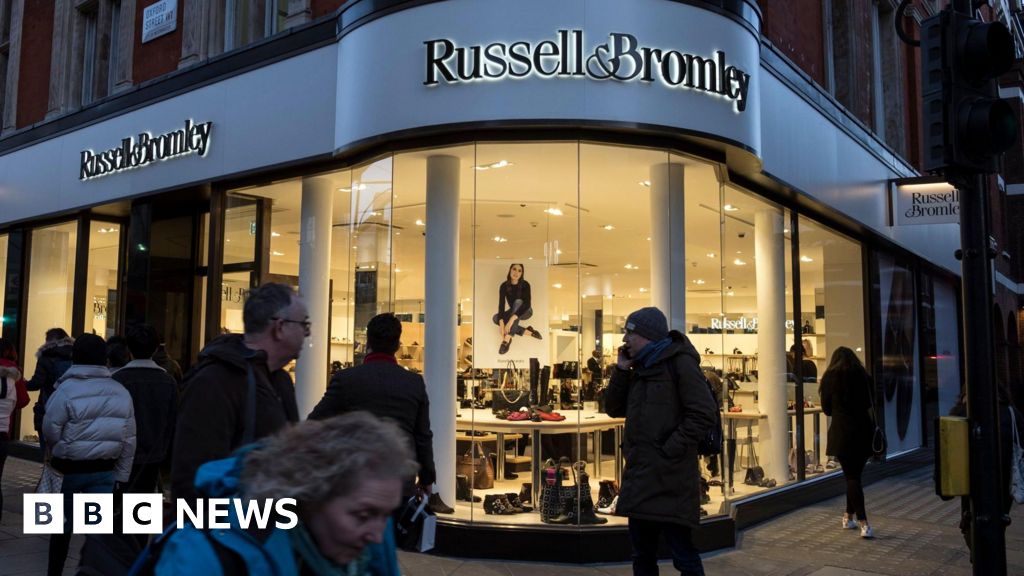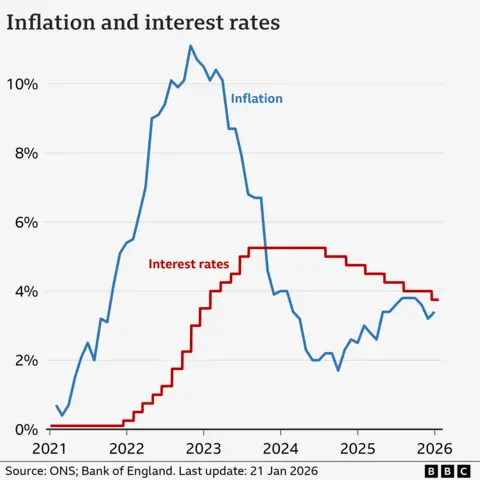Business
FTSE 100 down as US jobs market stalls in August

The FTSE 100 gave back early gains to close lower on Friday as a weak US jobs report boosted hopes of rate cuts, but also raised fears the world’s biggest economy was slowing.
“The [US] labour market is in a precarious position,” said analysts at Wells Fargo, putting the Federal Open Market Committee in a position “where it will imminently start cutting the federal funds rate”.
The FTSE 100 index closed down 8.66 points, 0.1%, at 9,208.21. It had earlier traded as high as 9,253.53.
The FTSE 250 ended 100.86 points higher, 0.5%, at 21,575.54 and the AIM All-Share finished up 3.63 points, 0.5%, at 765.63.
For the week, the FTSE 100 rose 0.2%, the FTSE 250 fell 0.1% and the AIM All-Share firmed 0.2%.
In New York, at the time of the London equities market close, the Dow Jones Industrial Average was down 0.7%, as was the S&P 500, while the Nasdaq Composite dropped 0.5%.
Friday saw another weak jobs report in the US with growth in non-farm payrolls well below market expectations, while the unemployment rate moved higher.
According to the Bureau of Labour Statistics, non-farm payroll employment increased by 22,000 in August, easing from 79,000 in July.
The July reading was upwardly revised from 73,000, however, June’s reading was knocked down to a net loss of 13,000 jobs from a gain of 14,000 previously reported.
The latest data fell short of the FXStreet cited consensus of 75,000.
The jobless rate edged up to 4.3% in August, as expected, from 4.2% in July.
Thomas Feltmate, senior economist at TD Economics, said: “There’s no escaping that the labour market is softening, and quickly.
“Fed officials have become increasingly concerned about the downside risks to the labour market, and this morning’s report will not assuage those fears.
“We maintained an out-of-consensus view since April that the Federal Reserve would need to deliver 75 basis points in rate-relief this year, and our conviction remains high that it will occur.”
Wells Fargo said the jobs engine, that has been integral to US economic growth defying expectations for the past four years, is “stalling”.
“With elevated risk of further downward revisions, the recent pace of hiring is dangerously close to crossing into negative territory, where job market weakness quickly becomes self-reinforcing,” the broker warned.
The report put pressure on the dollar and saw bond yields ease further.
The pound jumped to 1.35 dollars late on Friday afternoon in London, compared to 1.34 at the equities close on Thursday. The euro firmed to 1.17.
The yield on the US 10-year Treasury was quoted at 4.07%, narrowed from 4.20% on Thursday. The yield on the US 30-year Treasury was quoted at 4.79%, eased from 4.90%.
In Europe, the Cac 40 in Paris ended down 0.6%, while the Dax 40 in Frankfurt closed 0.9% lower.
Shares in Cobham-based housebuilder Bereley rose 3.0% as it said it is on track to report pretax earnings in line with its £450 million forecast for the financial year ending April 30, 2026, and down 15% from £528.9 million in financial 2025.
Berkeley said it has already secured 85% of its guided pretax earnings through exchange sales contracts, and that the firm remains on target to achieve a similar level of profit in financial 2027.
Berkeley’s update came as the Halifax house price index found that the average UK house price increased by 0.3% to a new record high of £299,331 in August.
“Affordability remains a challenge, but there are signs of improvement,” said Amanda Bryden, head of mortgages at Halifax.
Other housebuilders took heart from the news. Persimmon rose 2.8%, Barratt Redrow by 2.1% and Taylor Wimpey by 2.2%.
Aviva climbed 1.6% as Goldman Sachs restarted coverage of the insurer with a ‘buy’ rating and 736 pence price target.
But Admiral fell 3.0% as Peel Hunt downgraded to “sell” from “reduce” believing the outlook for underwriting margins in the UK motor space is “starting to deteriorate”.
A sharp drop in the oil price saw BP and Shell drop 2.6% and 2.3% respectively. A barrel of Brent traded at 65.14 dollars late Friday afternoon, down from 67.02 on Thursday.
Next rose 0.8% after UK retail sales accelerated ahead of expectations in July following continued good weather.
Total retail sales volumes are estimated to have risen by 0.6% in July, accelerating from an increase of 0.3% in June and comfortably beating an FXStreet-cited consensus for 0.2% growth in July.
Food store sales rose 2.5% in July to their highest level since February 2022, boosted by good weather and events such as the Women’s Euro 2025 tournament. Food store sales had increased 0.7% in June.
The ONS noted that the UK had its fifth-warmest July on record this year, according to the Met Office climate summaries.
The biggest risers on the FTSE 100 were Entain, up 28.00p at 864.40p, Berkeley Group, up 108.00p at 3,690.00p, Ashtead, up 152.00p at 5,538.00p, Persimmon, up 30.00p at 1,100.00p and Melrose, up 16.00p at 616.00p.
The biggest fallers on the FTSE 100 were Admiral, down 102.00p at 3,342.00p, BP, down 11.25p at 415.65p, Barclays, down 9.20p at 361.05p, NatWest, down 12.00p at 506.00p and Shell, down 60.50p at 2,627.50p.
Monday’s local corporate calendar has half-year results from insurer Phoenix Group.
The global economic calendar on Monday has China trade data.
Later in the week, US inflation figures and the ECB interest rate decision, both on Thursday, will be closely watched.
Business
Next buys shoe brand Russell & Bromley but 400 jobs still at risk

High street fashion giant Next has bought shoe retailer Russell & Bromley which had collapsed in to administration.
Next paid £2.5m in a rescue deal for the upmarket British footwear and accessories seller — but the future for most of the chain’s current staff and shops remains uncertain
Next will own the brand and three of Russell & Bromley’s 36 stores, as well as some existing stock for which it is paying an additional £1.3m.
Administrators Interpath said it was considering the future of the remaining stores, which for the moment remain open, as well as nine concession stores which all employ around 400 people.
Russell & Bromley’s chief executive Andrew Bromley said it was a “difficult decision” but the sale of the brand was the best way to secure its future.
The company is around 150 years old but has become the latest to struggle in a tough retail environment.
It joins other brands in a familiar path to largely disappearing off the high street via a process of administration, which means companies are often broken up and the highest value assets sold off to the highest bidder.
The Original Factory Shop and accessories retailer Claire’s are both currently going through a process of administration, with site closures and jobs at risk. Around 1,000 people lost their jobs after Bodycare collapsed in September, while River Island will close some stores to avoid a total collapse. The woes all come after a tranche of high profile closures such as Debenhams and Wilko.
In a statement, Next said it secured “the future of a much loved British footwear brand.”
“Next intends to build on this legacy and provide the operational stability and expertise to support Russell & Bromley’s next chapter, allowing it to return to its core mission: the design and curation of world-class, premium footwear and accessories for many years to come.”
The three stores Next will acquire are in high-end shopping destinations in or around London: Chelsea, Mayfair and Kent.
Next has seen relatively solid performance in the current turbulent retail landscape – unlike Russell & Bromley which has been loss-making in recent years.
Its saviour has experience in failing circumstances: last year, Next bought out of administration fashion maternity label Seraphine, and began rolling out its FatFace concessions a few years after snapping it up.
Business
Over 80% of below 40 entrepreneurs self-made – The Times of India

MUMBAI: Nearly four out of five of India’s leading young entrepreneurs are self-made, underscoring a shift in the country’s business landscape from inheritance to merit, according to the Avendus Wealth – Hurun India Uth Series 2025. The report shows that about 80% of business leaders under 40 featured in the ranking are first-generation founders.The study tracks entrepreneurs aged up to 40 whose companies meet minimum valuation thresholds ranging from $25 million to $200 million, based on age cohort and whether the founder is first- or next-generation. Of the 436 entrepreneurs shortlisted, 349 are self-made, pointing to a growing ecosystem driven by new ideas and technology rather than legacy ownership.Among first-generation founders, Ritesh Agarwal, founder of OYO, leads the list. At 31, Agarwal has built one of the most capitalised startups in the country, raising $3.7 billion. He is followed by Aadit Palicha and Kaivalya Vohra, both 22, whose quick-commerce firm Zepto has raised $1.95 billion.Other prominent first-generation entrepreneurs include Nikhil Kamath of Zerodha, now among India’s most-followed entrepreneurs on LinkedIn; Alakh Pandey of Physics Wallah, who disrupted the ed-tech space; and Ghazal Alagh, the most-followed woman entrepreneur on the list.Next-generation leaders account for about 20% of the ranking and continue to shape large family-run businesses. Key names include Isha Ambani of Reliance Retail, which employs more than 2.47 lakh people; Abhyuday Jindal, who is driving sustainability initiatives at Jindal Stainless; and Vidhi Shanghvi, who recently led Sun Pharmaceutical’s $355 million acquisition of US-based Checkpoint Therapeutics.The report categorises entrepreneurs across three age groups—under 30, under 35 and under 40. Together, the companies led by these 436 entrepreneurs are valued at more than $950 billion, higher than Switzerland’s GDP. Bengaluru tops the list with 109 entrants, followed by Mumbai with 87 and New Delhi with 45. Software products and services dominate with 77 entrepreneurs, ahead of financial services and healthcare, highlighting the tilt toward digital and technology-led businesses.
Business
Are UK interest rates expected to fall again?

Kevin PeacheyCost of living correspondent
 Getty Images
Getty ImagesThe Bank of England has cut interest rates from 4% to 3.75%, the lowest level since February 2023.
Analysts are divided about whether the Bank will cut again when it next meets in February.
Interest rates affect mortgage, credit card and savings rates for millions of people.
What are interest rates and why do they change?
An interest rate tells you how much it costs to borrow money, or the reward for saving it.
The Bank of England’s base rate is what it charges other banks and building societies to borrow money, which influences what they charge their own customers for mortgages as well as the interest rate they pay on savings.
The Bank moves interest rates up and down in order to keep UK inflation – the rate at which prices are increasing – at or near 2%.
When inflation is above that target, the Bank typically puts rates up. The idea is that this encourages people to spend less, reducing demand for goods and services and limiting price rises.
What has been happening to UK interest rates and inflation?
The main inflation measure, CPI, has dropped significantly since the high of 11.1% recorded in October 2022.
However, it was 3.4% in the year to December 2025 – up from 3.2% in November, and slightly higher than analysts had expected.
The Office for National Statistics (ONS) – which measures inflation – said the increase was driven by higher tobacco prices and the cost of airfares over the Christmas and New Year period.

The Bank of England’s base rate reached a recent high of 5.25% in 2023. It remained at that level until August 2024, when the Bank started cutting.
Five cuts brought rates down to 4%, before the Bank held rates at its meetings in September and November 2025 before the December cut.
Are interest rates expected to fall again?
Most analysts had expected the December cut, but the vote among members of the nine-member monetary policy committee (MPC) was divided, with only five in favour.
The Bank said rates were likely to continue dropping in the future, but warned decisions on further cuts in 2026 would be contested.
“We still think rates are on a gradual path downward but with every cut we make, how much further we go becomes a closer call,” said the Bank’s governor Andrew Bailey.
If inflation continues to rise – or just fails to fall – further rate cuts are less likely.
Mr Bailey has also repeatedly warned about the continuing impact of US tariffs, and political uncertainty around the world.
The next interest rate decision is on Thursday 5 February.
How do interest rate cuts affect mortgages, loans and savings rates?
 Getty Images
Getty ImagesMortgages
Just under a third of households have a mortgage, according to the government’s English Housing Survey.
About 500,000 homeowners have a mortgage that “tracks” the Bank of England’s rate. A 0.25 percentage point cut is likely to mean a reduction of £29 in the monthly repayments for the average outstanding loan.
For the additional 500,000 homeowners on standard variable (SVR) rates – assuming their lender passed on the benchmark rate cut – there would typically be a £14 a month fall in monthly payments for the average outstanding loan.
But the vast majority of mortgage customers have fixed-rate deals. While their monthly payments aren’t immediately affected by a rate change, future deals are.
Mortgage rates have been falling recently, partly owing to the expectation the Bank would cut rates in December.
As of 21 January, the average two-year fixed residential mortgage rate was 4.77%, according to financial information company Moneyfacts. A five-year rate was 4.87%.
The average two-year tracker rate was 4.41%.
About 800,000 fixed-rate mortgages with an interest rate of 3% or below are expected to expire every year, on average, until the end of 2027. Borrowing costs for customers coming off those deals are expected to rise sharply.
Mortgage calculator
You can see how your mortgage may be affected by future interest rate changes by using our calculator:
Credit cards and loans
Bank of England interest rates also influence the amount charged on credit cards, bank loans and car loans.
Lenders can decide to reduce their own interest rates if Bank cuts make borrowing costs cheaper.
However, this tends to happen very slowly.
 Getty Images
Getty ImagesSavings
The Bank base rate also affects how much savers earn on their money.
A falling base rate is likely to mean a reduction in the returns offered to savers by banks and building societies.
The current average rate for an easy access savings account is 2.45%, according to Moneyfacts.
Any further cut in rates could particularly affect those who rely on the interest from their savings to top up their income.
What is happening to interest rates in other countries?
In recent years, the UK has had one of the highest interest rates in the G7 – the group representing the world’s seven largest so-called “advanced” economies.
In June 2024, the European Central Bank (ECB) started to cut its main interest rate for the eurozone from an all-time high of 4%.
At its meeting in June 2025 the ECB cut rates by 0.25 percentage points to 2% where they have remained.
The US central bank – the Federal Reserve – has cut interest rates three times since September 2025, taking them to the current range of 3.5% to 3.75%, the lowest since 2022.
President Trump had repeatedly attacked the Fed for not cutting earlier.
-

 Tech1 week ago
Tech1 week agoNew Proposed Legislation Would Let Self-Driving Cars Operate in New York State
-

 Entertainment1 week ago
Entertainment1 week agoX (formerly Twitter) recovers after brief global outage affects thousands
-

 Sports6 days ago
Sports6 days agoPak-Australia T20 series tickets sale to begin tomorrow – SUCH TV
-

 Politics4 days ago
Politics4 days agoSaudi King Salman leaves hospital after medical tests
-

 Business5 days ago
Business5 days agoTrump’s proposed ban on buying single-family homes introduces uncertainty for family offices
-

 Tech6 days ago
Tech6 days agoMeta’s Layoffs Leave Supernatural Fitness Users in Mourning
-

 Tech7 days ago
Tech7 days agoTwo Thinking Machines Lab Cofounders Are Leaving to Rejoin OpenAI
-

 Fashion4 days ago
Fashion4 days agoBangladesh, Nepal agree to fast-track proposed PTA






